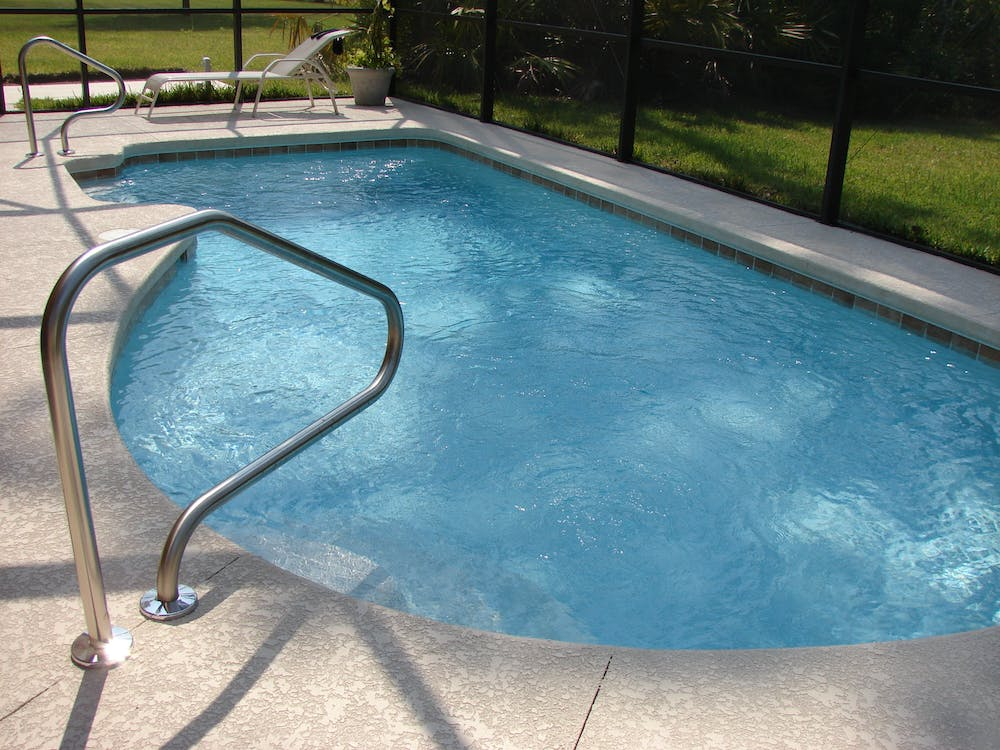
Keeping your swimming pool in top-notch condition is more than just a desirable goal—it’s an absolute necessity. A well-maintained pool not only guarantees countless hours of fun and relaxation but also ensures the safety and health of everyone who dives in.
However, pool maintenance, which extends beyond mere cleaning tasks, often appears as a daunting task to many. It involves efficient filtration, maintaining the right chemical balance, regular checks for leaks, and ensuring that all equipment is in good working condition.
This comprehensive guide offers practical advice and tips for every aspect of pool maintenance. So, whether you’re a seasoned pool owner or a newbie, dip into these maintenance strategies to ensure your pool always remains in pristine condition.
Regular Skimming and Scrubbing
One of the simplest ways to keep your pool clean and inviting is by regularly skimming the surface and scrubbing the sides. Skimming should be a part of your daily routine — it removes leaves, bugs, and other debris that can affect the water quality. Regular scrubbing, on the other hand, prevents algae buildup on the pool sides.
Depending on the type of pool and the local climate, scrubbing once a week should suffice. Remember, an ounce of prevention is worth a pound of cure, and these habits can go a long way toward maintaining a healthy and sparkling pool.
If you have a vinyl or fiberglass pool, it’s essential to use a soft brush with a non-abrasive cleaner to avoid damaging the surface. For concrete pools, you can opt for a more abrasive brush and occasionally use acid washing to get rid of stubborn stains.
Investing in Robotic Pool Cleaners
Robotic pool cleaners are the epitome of convenience and efficiency in pool maintenance. These innovative devices work independently from your pool’s filtration system, moving around to pick up debris and scrub your pool floor, walls, and waterline.
They are energy-efficient, requiring minimal electricity to operate, and can significantly reduce the need for manual cleaning. Additionally, their sophisticated algorithms ensure every nook and corner of your pool gets cleaned. Investing in a robotic pool cleaner not only lessens your workload but also contributes to the overall longevity of your pool.
When there is no debris or algae build-up, there is less strain on the pool’s filtration system, reducing the likelihood of costly repairs. Those who have tried robotic pool cleaners can attest to the fact that they are worth every penny.

Cleaning Your Pool Filter
Pool filters play an integral role in maintaining pristine water quality by removing small particles and contaminants that could affect the health of swimmers. However, like any other filter, it requires regular cleaning to function correctly and efficiently.
Neglecting pool filter maintenance can result in poor filtration, cloudy water, and even equipment damage. The type of filter you have will determine how often you need to clean or backwash it. Cartridge filters should be rinsed at least once a month and replaced every 2-3 years. Sand filters require backwashing once a week, and the sand should be replaced every 5-7 years.
Finally, D.E (diatomaceous earth) filters need to be back washed at least twice a month and have the powder replaced once or twice per year.
Checking Chemical Levels
Maintaining proper chemical levels in your pool is crucial for preventing algae and bacteria growth. The three main chemicals you need to monitor are chlorine, pH, and alkalinity. Chlorine levels should be kept between 1-3ppm (parts per million), while the pH should be maintained at a level of 7.2-7.6 to prevent skin and eye irritation.
Alkalinity works as a buffer for pH levels and should be kept between 80-120ppm. Regularly testing these levels is essential, especially after heavy rain or increased pool usage, as they can fluctuate easily. For a more accurate reading, consider investing in a digital testing kit.
For an eco-friendly option, you can also use natural alternatives to chlorine, such as saltwater systems or mineral sanitizers. Replacing harsh chemicals with these alternatives can provide a more gentle swimming experience for sensitive skin and also reduce the overall chemical costs.
Don’t Neglect Equipment Checks
Regularly inspecting your pool’s equipment is essential for preventing major issues that could result in costly repairs. Be vigilant for any leaks or cracks in and around the pool and filtration system, promptly replacing any worn-out parts. Additionally, ensure that the pool’s water level remains within the recommended range. Maintaining adequate water levels is crucial, as low levels can damage the pump and filtration system, while high levels can lead to flooding.
On the other hand, investing in a pool cover can greatly reduce the need for water and chemical maintenance. It acts as a barrier, preventing debris from entering the pool and minimizing evaporation, thereby saving you both time and money. When opening your pool for the season, thoroughly inspect all equipment and replace any malfunctioning parts. If you find yourself constantly dealing with equipment issues, it may be worth considering an upgrade to more energy-efficient and modern systems.

Off-Season Pool Care
While pool maintenance during the swimming season is important, off-season care is equally essential. Neglecting your pool during the off-season can lead to severe issues and costly repairs when summer rolls around. First, it’s important to balance your pool’s chemistry before you close it for winter. This involves adjusting the pH, alkalinity, and calcium hardness levels.
Next, thoroughly clean and backwash your filter, and lower the water level to prevent freezing damage. Invest in a high-quality pool cover to keep out debris and check periodically for any damage. Remember, a little effort during the off-season can save you a lot of time and hassle when it’s time to dive in again.
In some cases, you may need professional assistance with pool maintenance. Don’t hesitate to call in a pool technician if you encounter any major issues or are unsure about certain tasks. Additionally, keeping a log of your pool’s maintenance can help you track any patterns or problems that may arise over time.
To sum it up, maintaining your swimming pool may indeed require diligence, consistency, and a certain degree of knowledge, but the benefits are undeniably worth the effort. By implementing these strategies and tips, you ensure a clean, safe, and inviting pool that withstands the test of time. Regular maintenance not only enhances the longevity of your pool but also significantly improves your overall swimming experience.
Remember, pool care should be proactive rather than reactive. Keeping your pool in top-notch condition is an investment that will pay off for years to come. When in doubt, always remember to refer back to this guide for practical maintenance tips.




